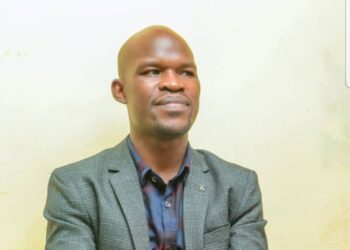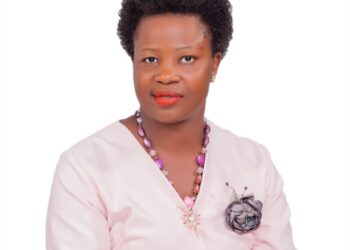The recently concluded National Resistance Movement (NRM) village elections have been marred by controversy, with many attributing the chaos to the exclusion of youth from the electoral process. This lack of representation and involvement of young people in the party’s decision-making structures has led to widespread discontent and frustration. Uganda has a significant youth population, with over 75% of our citizens under the age of 30 and approximately 78% of the population under the age of 35. This demographic is not only significant in numbers but also in terms of energy, creativity, and innovative ideas. The youth in Uganda are increasingly educated, with many holding vocational skills, diplomas and degrees from various institutions. The literacy rate among youth stands at around 85%, making them an eager and capable force to contribute to the country’s development and participate in decision-making processes.
The exclusion of youth from NRM’s electoral process has had far-reaching consequences. High-ranking party members, such as notable figures like Kiwanda Ssubi the vice chairperson for Buganda, who have been instrumental in the party’s growth, lost in the elections and chased away by angry youth. This loss can be attributed, in part, to their disconnection from the youth demographic. The party’s leadership structure has also been criticized for being out of touch with current realities. Some leaders have held positions for extended periods, becoming detached from the needs and aspirations of the younger generation. This has led to a perception that the party is stuck in the past, failing to adapt to the changing times.
Moreover, the exclusion of youth from party activities has led to the rise of vibrant young leaders who are seeking to make their mark. Individuals like Hakim Kyeswa, who is eyeing the Central Executive Committee Vice Chairperson position for Buganda, Duncan Abigaba, Blaise Kamugisha, and Isaac Akampurira, who are vying for Vice Chairperson for Western region, are examples of the new generation of leaders who are eager to take on leadership roles. Another notable example is Hellen Nakeeya, commonly known as “Omuyiribi,” a young lady who has resonated with the electorate, particularly the youth, in Kalungu. Her emergence as a strong contender led to the State Minister for Water and Woman Member of Parliament for Kalungu, Hon. Aisha Sekindi, declaring not to participate in the party primaries, citing stiff competition. This incident highlights the growing influence of young people in Ugandan politics and the need for the NRM to take them seriously.
These young leaders are asking pertinent questions, such as why young people can’t become village,parish, sub-county, and district NRM chairpersons. When will the young people feel that they are in charge of their future? The party’s reluctance to pass on the mantle of leadership to the next generation raises concerns about continuity and the party’s long-term viability.
The frustration among young people has boiled over, resulting in chaotic scenes and disputed outcomes during the elections. These ugly incidents were registered in Lwemiyaga,Gulu city, Northern division in Kabale, mulongo village and central division in Mukono, Wakiso and many other parts of Uganda. The consequences of excluding youth from the electoral process are far-reaching, undermining the legitimacy of the party’s leadership and creating an environment conducive to conflict and instability. By ignoring the needs and aspirations of young people, the party risks alienating a critical demographic and jeopardizing its future.
Furthermore, the NRM’s neglect of its capable youth has resulted in the infiltration of the party register by many opposition people whose plan is to vote overwhelmingly for weak candidates in the primaries and eventually win the party in the general elections. This is evident in the recently concluded village elections, where the number of voters was significantly lower than those registered. If the NRM leadership does not re-evaluate its approach and empower its youth wing, the party may face more surprises going forward.
The party’s inability to constitute a dialogue committee since the 2020 primaries has also contributed to the chaos. This committee was meant to settle internal grievances between different aspirants in different districts of Uganda. However, its absence has left many aggrieved individuals harboring anger and resentment, leading to a divided NRM membership. In some areas, NRM electoral commission bosses have been accused of rigging votes in broad daylight, and the party has failed to take corrective action. For instance, the 2020 Woman member of parliament primary elections in Kazo were marred by controversy, with Dr. Tango Odoi, the NRM Electoral Commission Chairperson, declaring the “loser” as the winner in Mbarara fearing backlash from angry voters. These mistakes have never been corrected, and it’s no wonder that chaos has continued to erupt in internal elections.
The opposition’s growth has been significant over the years. In the 2011 general elections, the National Resistance movement garnered around 68% of the total votes cast. However, in the 2016 general elections, this number decreased to around 60.62%%, and in the 2021 general elections, it decreased further more to approximately 58.38%. This trend indicates a growing dissatisfaction with the ruling party among Ugandans, particularly the youth.
Meanwhile, Uganda is grappling with rampant unemployment, with the national unemployment rate standing at around 12.6% as of 2022, according to the Uganda Bureau of Statistics. The 2024 National Population and housing census report shows nerve wrecking trends wjere 51% of the youth aged between 18-30 are not in employment,education or training. This has led to widespread frustration and disillusionment among young people, who feel that the government is not doing enough to address their needs. The reluctance of older leaders to create space for young people in leadership positions only exacerbates the problem. As one observer noted, “It’s ironic that the same leaders who have held positions for decades are now complaining about the opposition’s growth, when they themselves have refused to pass on the mantle to the next generation”.
To prevent similar chaos in future elections, the NRM needs to prioritize youth inclusion and empowerment. This can be achieved by creating meaningful opportunities for youth participation in decision-making structures.
The Writer Is A Senior Cadre & Works With Office Of The National Chairman NRM.
Do you have a story in your community or an opinion to share with us: Email us at editorial@watchdoguganda.com













